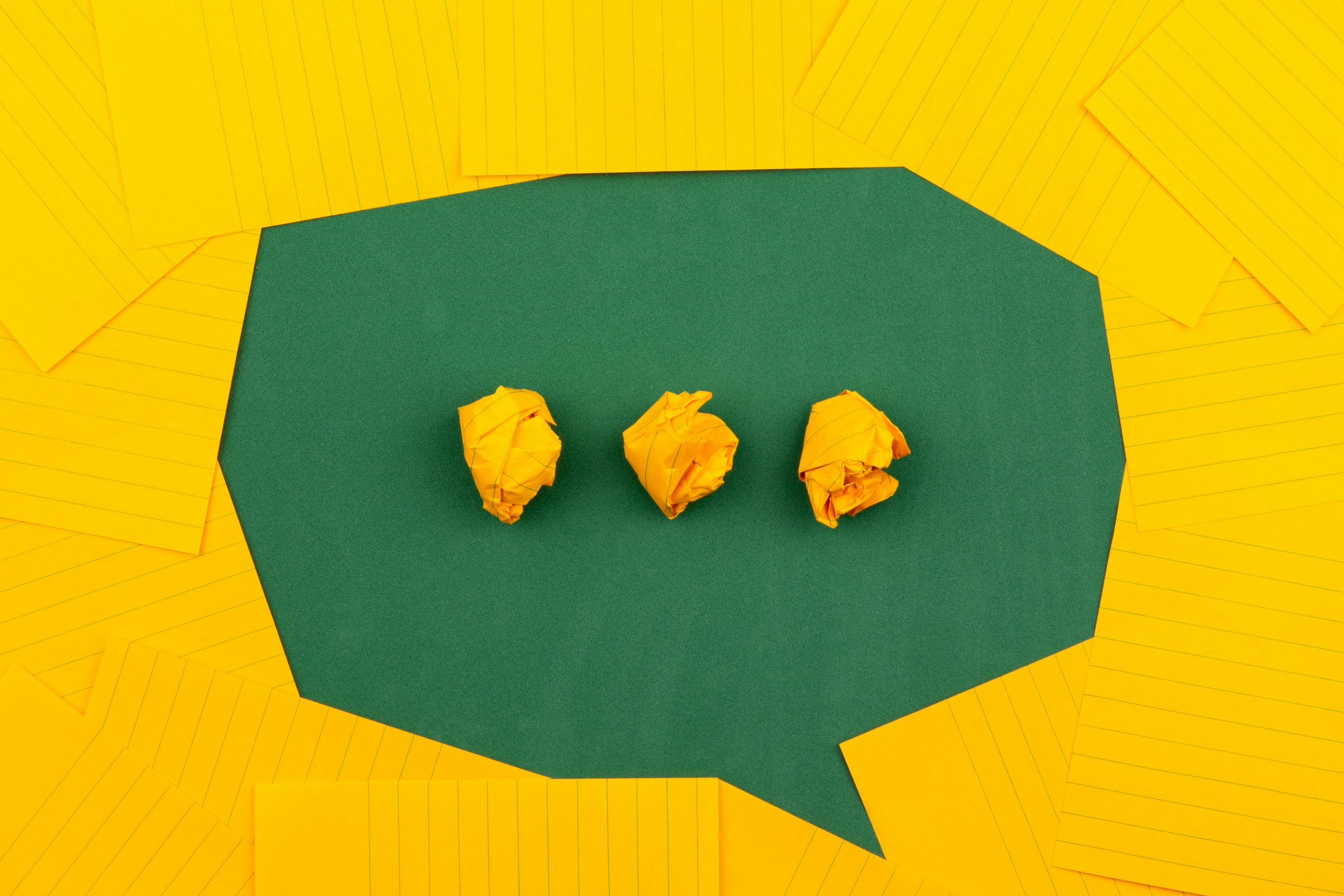
14 Mar It’s OK to Ignore a Text (Sometimes)
Human communication never used to be immediate, unless we were standing face-to-face. Letters could take days to arrive, and even more time to be answered. Phone calls could be left ringing, or answered by an answerphone message. No-one got irate if their attempts to contact us took a little bit of time. Now, if we ignore a text for longer than a few minutes it feels like a deadly social crime.
Text response times, ghosting, and being ‘left on read’ spawn memes all over the internet. We’re all agonising about why our messages aren’t being replied to immediately, while acknowledging we’re all overwhelmed with the volume of messages we receive every day.
So, is it really ever OK just to ignore a text?
Messaging is overwhelming us
Before we answer that question, take a look at just how big the problem of messaging overwhelm is. In 2016 Mark Zuckerberg revealed that the daily message volume from Facebook Messenger and WhatsApp combined stood at three times the global volume of daily SMS messages, at 60 billion messages a day compared to 20 billion SMSs. And in 2012 we knew that adults 18-44 were individually sending and receiving between 50 and 120 texts a day.
- Adults 18-24 sent and received over 128 texts every day.
- Adults 25-34 sent and received over 75 texts a day.
- Adults 35-44 sent and received about 52 texts a day.
A decade later we have a glimpse into how those messages have proliferated. In the third quarter of 2021 in the UK alone the volume of SMS and MMS messages sent and received was around 10.6 billion messages.
Take a look at your own phone for a minute and count up how many messages you sent and received across all messaging platforms yesterday. Had you any idea just how many it was?
Do response times really = importance?
A whole heap of (only partially) tongue-in-cheek analysis has been devoted online to what it really means when someone takes a takes a certain amount of time to text you back. 12+ hours apparently means “you’re definitely on the cusp of insignificance” whereas 5-60 seconds means “You are Christmas morning to this person!”.
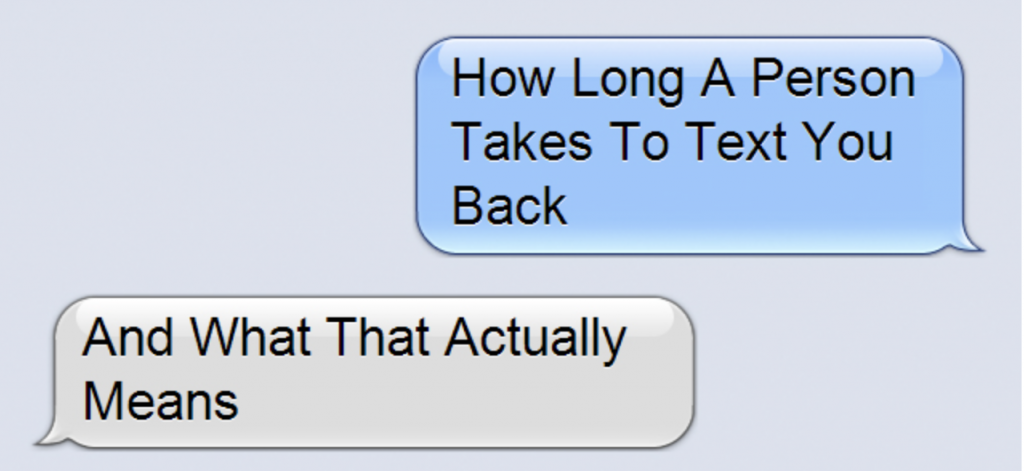
It’s worth noting though that even in the good news that you are “Christmas morning” to the speedy responder is buried the warning “Or they have no life at all”…
So, does the length of response time really equate to where you are in the life importance hierarchy of the person receiving it? What if they’re in a meeting, on a call, in the gym? What if they’re having a really, really bad day (or equally a really, really good one, and are off out celebrating somewhere)? What if they’re sitting across a table from a friend who, maybe one day like you, needs their full attention right now?
The agony of being ‘left on read’
Of course, it’s not as simple as just agonising over the gap between sending a message and receiving the response. ‘Read’ receipts, introduced by Apple in 2011, signalling when a message is ‘read’, rather than just ‘delivered’ (along with the timestamp) introduced a whole new realm of messaging-related anxiety. (Along with those evil blue ticks on WhatsApp). Both the Apple and WhatsApp read receipts can now be switched off (whew) but Facebook and Snapchat, don’t allow that. Snapchat even cruelly lets us know whether a screenshot of a snap or message has been taken.
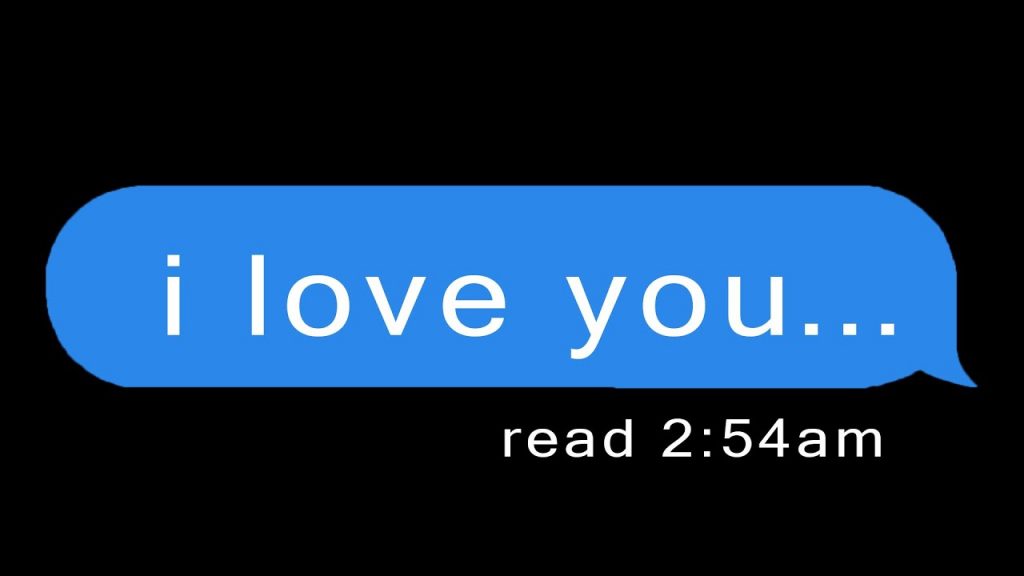
Knowing when something we’ve sent has been received isn’t new of course. Postal organisations have let us use ‘signed for’ services for decades, so we could find out when a parcel or package was received. Courier and delivery companies now even record and send a photo of a parcel actually being handed over on the doorstep. But the ‘read’ receipts of the online world seem to induce a particular type of agony. We are unequivocal in our advice on this for your mental health – turn read receipts off.

Digital triage
One of our favourite digital gurus Cal Newport, whom we interviewed on our ‘It’s Complicated’ podcast, describes what we all need to do with digital and messaging overwhelm as ‘digital triage’. And digital triage inevitably means that yes, sometimes we are just going to have to ignore a text message for a while, if something much more urgent is in our in-box.
triage (noun)
(in medical use) the assignment of degrees of urgency to wounds or illnesses to decide the order of treatment of a large number of patients or casualties.
Most of us have absolutely no choice but to get much better at digital triage and to make it a central part of our day, when we’re flooded with requests for Zoom calls, Slack messages, emails, texts and DMs. Instead of attempting the impossible task of replying to everything immediately, we need to stop and think before answering and work out which ones are urgent and which merely important, while not worrying about offending those who we place further down the triage list.
Balancing good manners and self care
Maybe our worries about how our response (or delayed response) will be perceived are actually more about us than the sender? A November 2021 study found receivers tend to overestimate how quickly senders expect responses to non-urgent work emails, for example. Perhaps the same is true for messaging, and we can let ourselves off the hook a little more than we think?
“You have to be a civil and decent person, but you don’t have to give your time and attention to everyone who asks for it.”
Daniel Post senning, the emily post institute
It’s all about how we ignore a text of course. No-one wants to be rude. So, set clear expectations for response times, use automated tools to let people know you won’t be responding for a while and remind yourself that, if you’re doing digital triage properly, not every message needs or deserves a response.
The sanity checklist
So, yes, we really do think there are times when it’s absolutely OK to ignore a text. But, unless you want to find yourself without any friends and with a very annoyed family, design your environment and communicate your new habits clearly so you can do this with the minimum of offence given. Here’s our checklist;
- Tell everyone your ‘no go’ texting times ( ie “never after midnight”)
- Disable all ‘read’ receipts
- Make use of ‘do not disturb’ mode
- Enable ‘auto reply’ features
- Give others permission to ignore a text from you
That last one is the most important of all. You can’t expect to be able ignore a text from a friend because it doesn’t come at a good time for you, then get upset when they do the same. Explain that this is about taking stress off everyone and that you’re completely OK with longer response times (just make sure you mean it, when you say it).
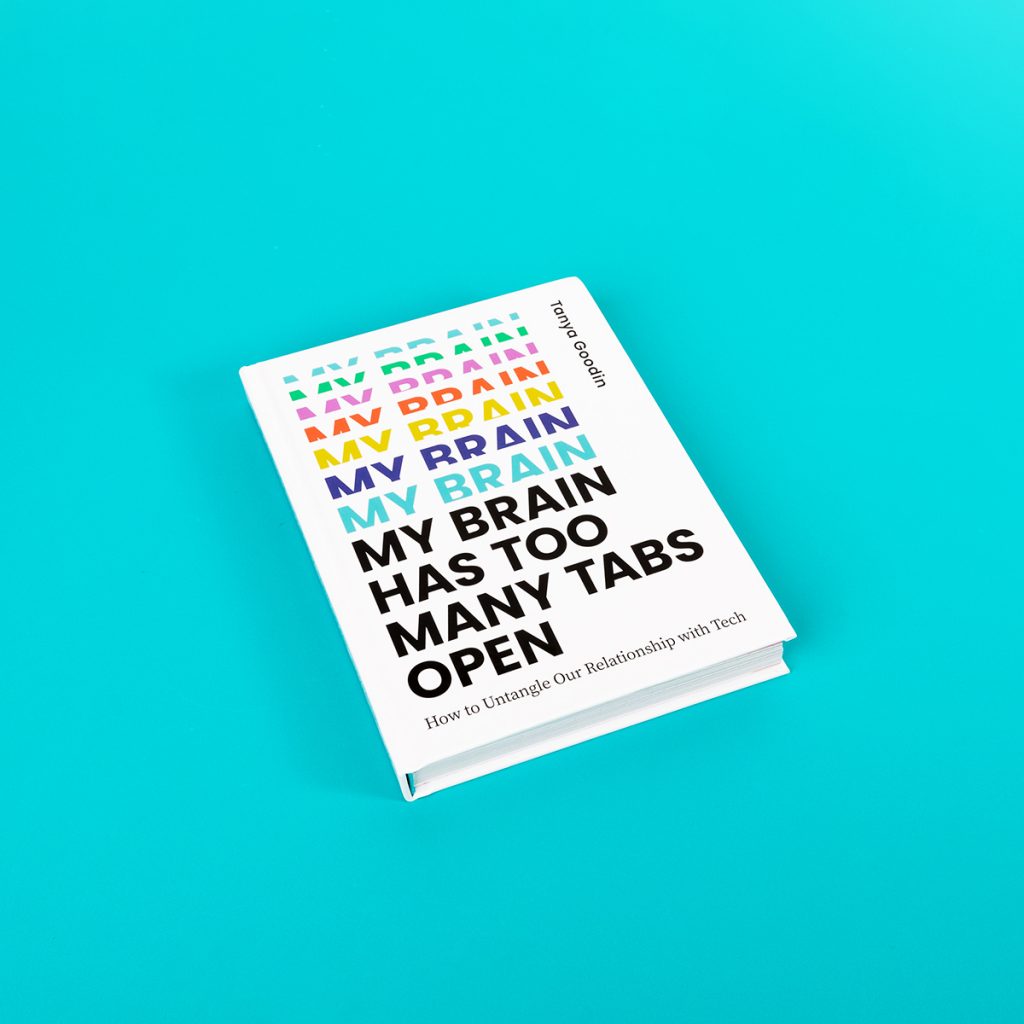
For more about texting, messaging and the impacts of being over-connected to the digital world – pick up a copy of our new book: My Brain Has Too Many Tabs Open. Available to order here.

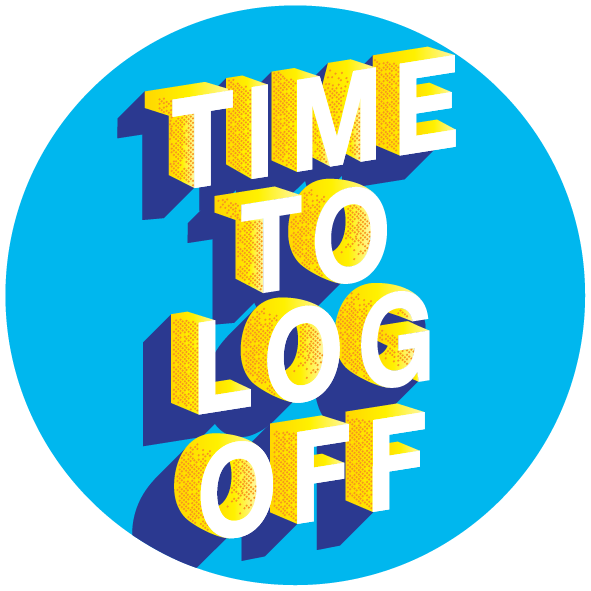




Sorry, the comment form is closed at this time.